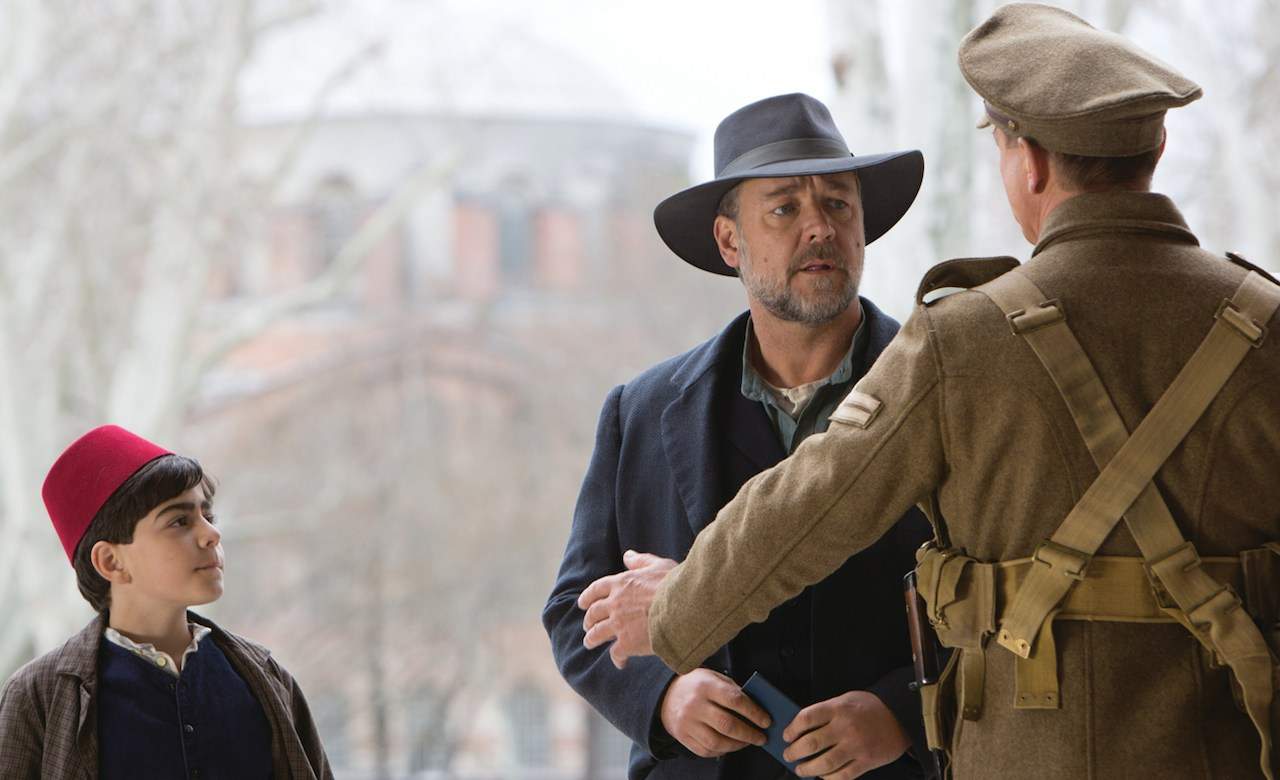The Water Diviner
The strength of Russell Crowe's directorial debut is in its entirely inglorious depiction of the Anzac experience.
Overview
Russell Crowe’s directorial debut, The Water Diviner, is a fine example of what might be termed 'a trailer movie’. Not because it’s stereotypically cheap, unsophisticated and championed by a guy named ‘Russell', but because it gives the impression of having been written, produced and directed entirely around a vision for how it might be sold to audiences.
The Water Diviner's trailer, for example, features a perfect meld of spectacular visuals and intimate disclosures: a sandstorm of biblical scale followed by: “You can find water but you can’t even find your own children!”; a body-littered battlefield illumined by blinding explosions, with: “Gallipoli? There’s nothing there but ghosts”. You see the trailer and you think: “Man, I’ve got to see that film”, then you see that film and you think: “Man, that trailer was really good”.
How this plays out in practice is that The Water Diviner feels very deliberate; a converted warehouse apartment of a film in that it's unembellished and beautiful, yet with all its parts exposed. You see how it was assembled, how everything fits together — a tradeoff of striking visuals at the expense of mystery.
The plot, based on an astonishing true story, concerns an Australian farmer and father named Joshua Connor (Russell Crowe) whose three sons were all killed on the same day at Gallipoli. At the close of the war, Connor travelled to Turkey to locate their bodies, though with tens of thousands of remains, both Australian and Turkish, scattered across the wasteland, most considered it an insurmountable task.
The film’s title, however, refers to Connor’s almost mystical ability to seek out subterranean water reserves in the otherwise barren Australian outback, and he uses that same gift to locate his dead sons on the battlefield. The latter application is admittedly less plausible and would feel horribly hinky were it not for Crowe’s understated sincerity and his character’s frank admission that he fails at the former "all the time".
The Water Diviner's narrative flicks back and forth between Connor’s endeavours and his sons' final hours on the battlefield, and it's those brief scenes between the brothers where the film is at its heart-wrenching best. Most impressive is its entirely inglorious depiction of the Anzac experience, acknowledging the heroism but focusing exclusively on the horror. The guttural, almost animalistic wailing of one wounded brother is one of the most unsettling scenes ever depicted in a war movie and is to be commended both on its direction and performance.
Less impressive is the clumsy and unnecessary romantic subplot between Crowe and his Turkish hotelier, Ayshe (Olga Kurylenko). It’s disappointing that so far Hollywood has proven itself incapable of capturing the subtlety of Kurylenko’s earlier work in films like L’Annulaire (The Ring Finger), favouring an emphasis on her beauty rather than her genuine talent. Still, with 2015 marking the centenary of Gallipoli, this is a well-timed and well-intentioned movie that marks a decent directorial debut for the Academy Award-winning Crowe.





